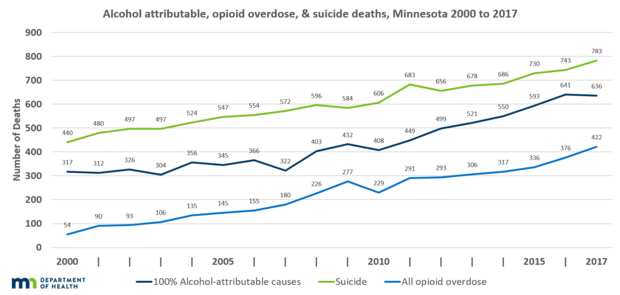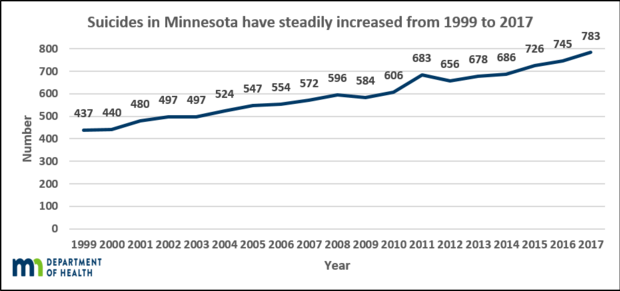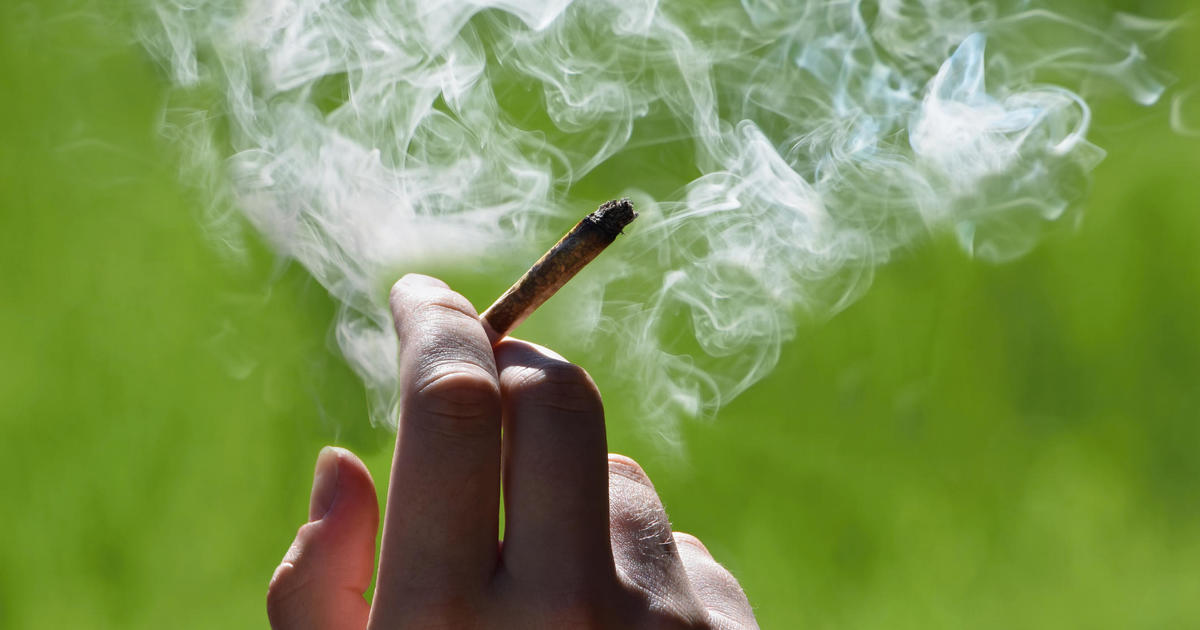MDH: Deaths From Opioids, Suicide & Alcohol Continue To Rise Or Remain High
MINNEAPOLIS (WCCO) – Health officials in Minnesota say yearly deaths from opioids, alcohol and suicide are continuing to rise or remain near multi-year highs.
The Minnesota Department of Health revealed Monday data from 2017, showing that 422 Minnesotans died from opioids, 636 died from alcohol-related incidents and 783 died by suicide.
Health Commissioner Jan Malcolm says the state is working to address the rising rates with community-level solutions, such as mental and chemical health treatment options, fatality review teams and making sure the anti-overdose drug naloxone is easily available to first-responders and concerned Minnesotans.
Suicide
Suicide is currently the eighth-leading cause of death in Minnesota, health officials say.
The number of suicide deaths in the state has been rising since 1999, when the number was 437. In the latest numbers released this week, from 2017, the number was 783.
On its website, the Health Department says that the number of Minnesotans who die from suicide each year is about the same as losing an entire small town, many of which have populations fewer than 800 people.
Suicide is hitting Minnesota's Native American community particularly hard, health officials say. From 2013 to 2017, the group experienced the highest suicide rate of any racial group in the state.
Additionally, officials say that guns play a significant role in suicide in Minnesota. Guns are the leading mechanism for suicide for Minnesota men, accounting for 54 percent of male suicide deaths.
For anyone experiencing suicidal thoughts, help is available. Just text the Crisis Text Hotline by messaging "HOME" to 741741 or call the National Suicide Prevention Hotline at (800) 273-8255. Both services are free.
Opioid Deaths
Opioid overdose deaths have also been steadily increasing in Minnesota for years.
Since 2010, when the number of opioid overdose deaths was 229, the number has increased each year, hitting 422 in 2017.
However, health officials say that the greater availability of the anti-overdose dug naloxone has helped prevent overdose deaths.
According to Health Department statistics, there were more than 2,000 non-fatal overdoses in Minnesota in 2017.
Health officials credit first-responders having naloxone, as well as legislation that provides increased over-the-counter access to the life-saving drug, for preventing many overdoses.
In an effort to curb opioid overdose deaths, some organizations, such as the city of Minneapolis and the Minnesota National Guard, have led fatality review teams to see what system-level changes can be made to prevent future deaths.
Alcohol-Related Deaths
While alcohol-related deaths have risen with opioid deaths and suicides over the last several years, the number for 2017 was down slightly from the year before.
From 2016 to 2017, alcohol-related deaths fell from 641 to 636. While that's a slight change, it does mark the first time since 2010 that the number has fallen.





